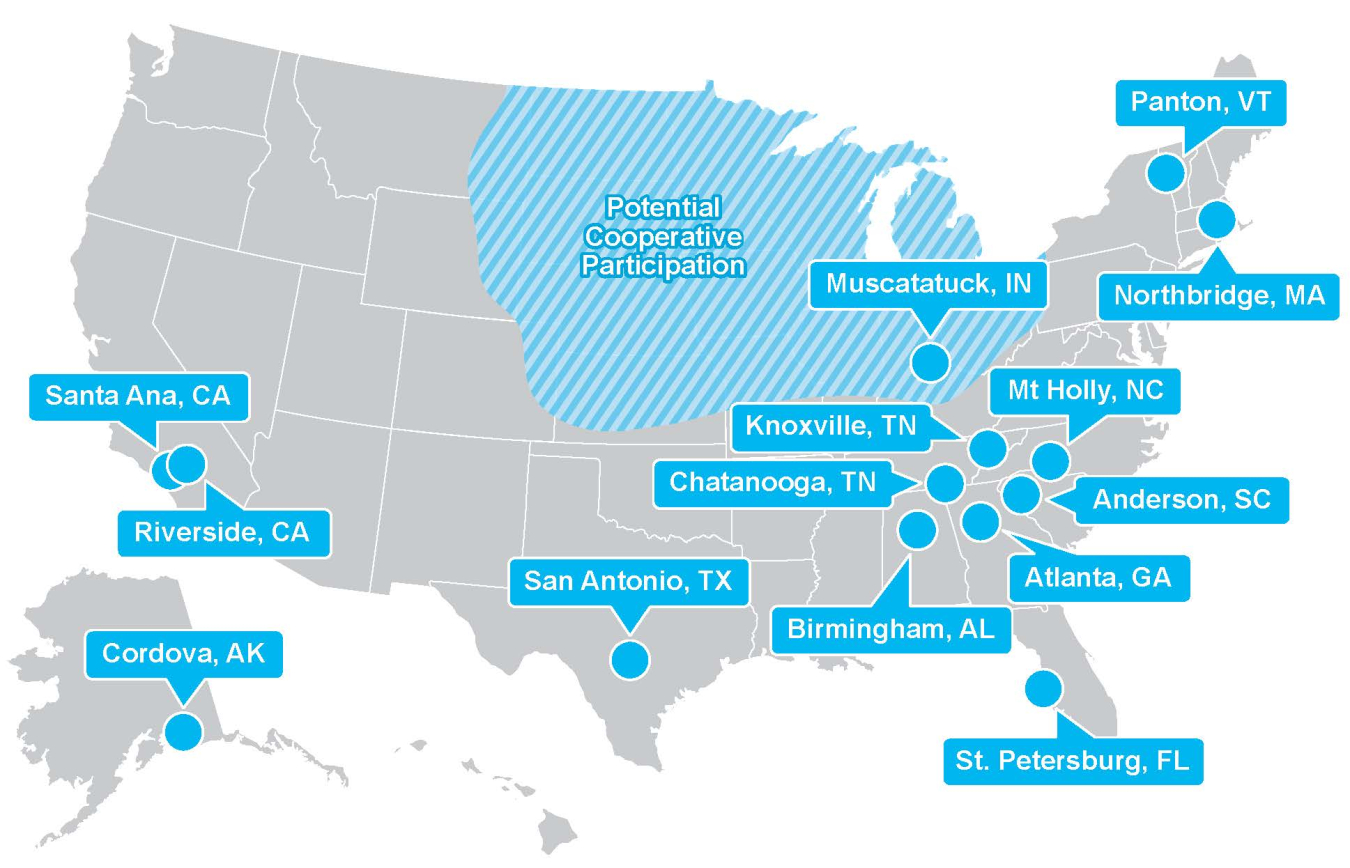DOE announced funding of up to $32 million over three years for the Resilient Distribution Systems (RDS) Lab Call.
September 4, 2017
In September 2017, the Energy Department announced funding of up to $32 million over three years for the Resilient Distribution Systems (RDS) Lab Call to the Grid Modernization Laboratory Consortium (GMLC) and their partners to advance resilient distribution systems, focusing on the integration of clean distributed energy resources (DER), advanced controls, grid architecture, and emerging grid technologies at a regional scale.
This award seeks to develop and validate innovative approaches to enhance the resilience of distribution systems, including microgrids, with high penetration of clean DERs. A variety of technological advancements will be tested in rigorous field validations including control/coordination strategies, real-time system monitoring, robust communications infrastructure, grid planning and analytical platforms, and integration of multiple DER technologies. In addition, resilient distribution systems require advancements in cybersecurity technologies so that innovative grid technologies are designed from the earliest stages to survive a cyber-incident. The project results are expected to deliver credible information on technical and economic viability of integrated solutions as well as demonstrated viability to key stakeholders who are ultimately responsible for making grid modernization investments.
Ten national labs will be participating in this lab call, including Argonne National Laboratory, Idaho National Laboratory, Los Alamos National Laboratory, Lawrence Livermore National Laboratory, Lawrence Berkeley National Laboratory, National Renewable Energy Laboratory, Oak Ridge National Laboratory, Pacific Northwest National Laboratory, SLAC National Accelerator Laboratory, and Sandia National Laboratories.
The seven projects funded will build upon the work in the first call to the GMLC, the Grid Modernization Lab Call, and further supports the goals outlined in the Grid Modernization Multi-Year Program Plan. RDS projects include:
- Grid Resilience and Intelligence Platform (GRIP): Anticipate, absorb, and recover from grid events by demonstrating predictive analytics capabilities, combining state-of-the-art artificial intelligence and machine learning techniques, and controlling DERs.
- Resilient Alaskan Distribution System Improvements using Automation, Network Analysis, Control, and Energy Storage (RADIANCE): Enhance the resilience methods for distribution grids under harsh weather, cyber-threats, and dynamic grid conditions, using multiple networked microgrids, energy storage, and early-stage grid technologies.
- Increasing Distribution Resiliency using Flexible DER and Microgrid Assets Enabled by OpenFMB: Accelerate the deployment of resilient and secure distribution concepts through the flexible operation of traditional assets, DERs, and microgrids using OpenFMB.
- Integration of Responsive Residential Loads into Distribution Management Systems: Research and validate open-source home energy management systems (HEMS) to support distribution resiliency use cases and end-to-end interoperability.
- CleanStart-DERMS: Validate and demonstrate at scale a DER-driven mitigation, blackstart and restoration strategy for distribution feeders with integration of applied robust control, communications and analytics layer, and coordinated hierarchical solution.
- Resilient Distribution Systems: Focus on effective integrated resource planning and metrics, control systems, inverter-dominated islanding with storage and regional consortia.
- Laboratory Valuation Analysis Team: Provide efficiency and consistency in performing valuation analysis across the entire GMI portfolio of field validation projects using appropriate metrics. Using a cross-cut approach will provide a consistent framework and approach in conducting the benefit/cost analysis of each project, impacts analysis (e.g. potential benefits to region) and broader synthesis of results from this project call.
Read here for the full description of the RDS Lab Call Awards or read the full funding award announcement (co-announced with CEDES awards) here.

